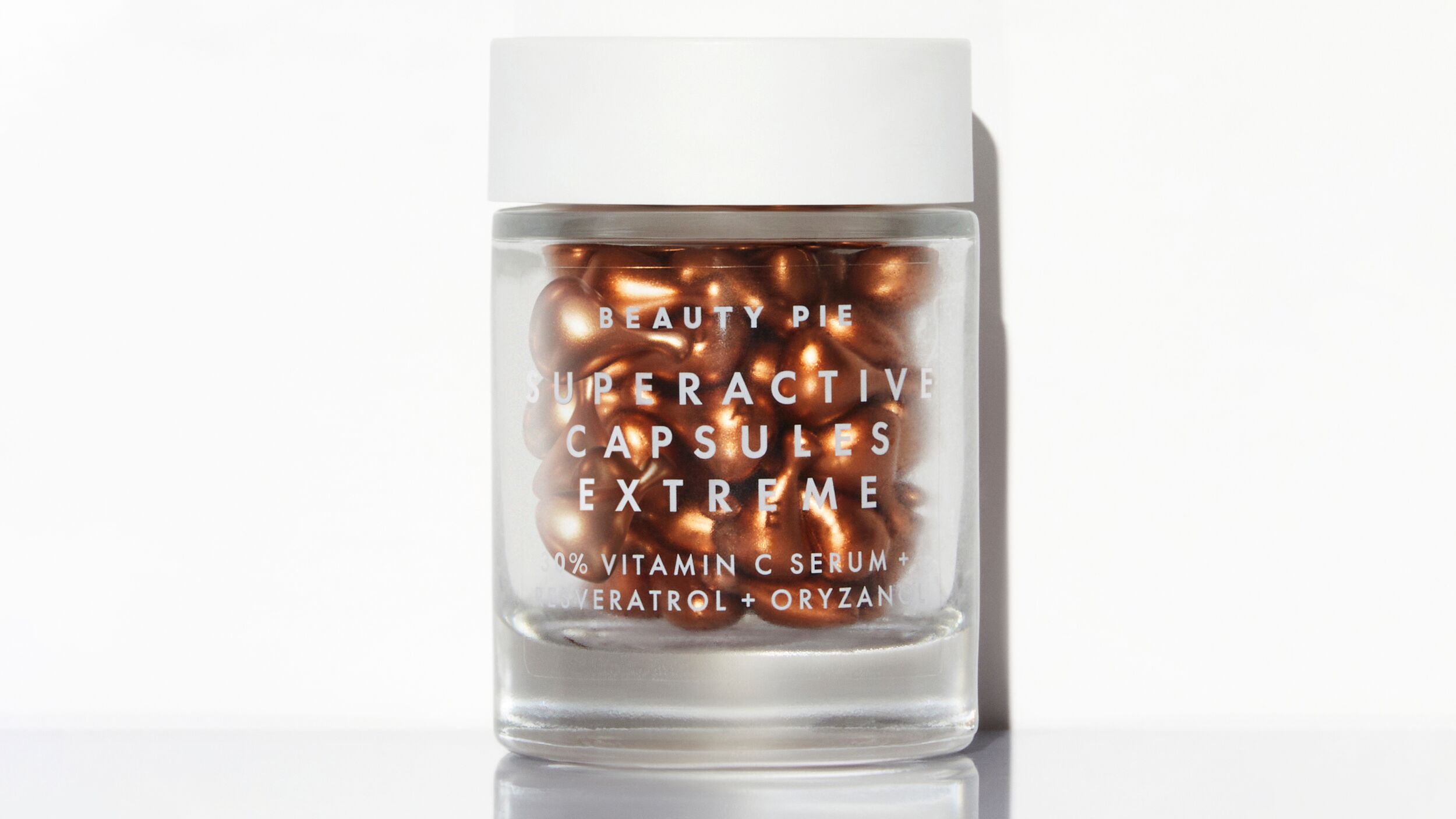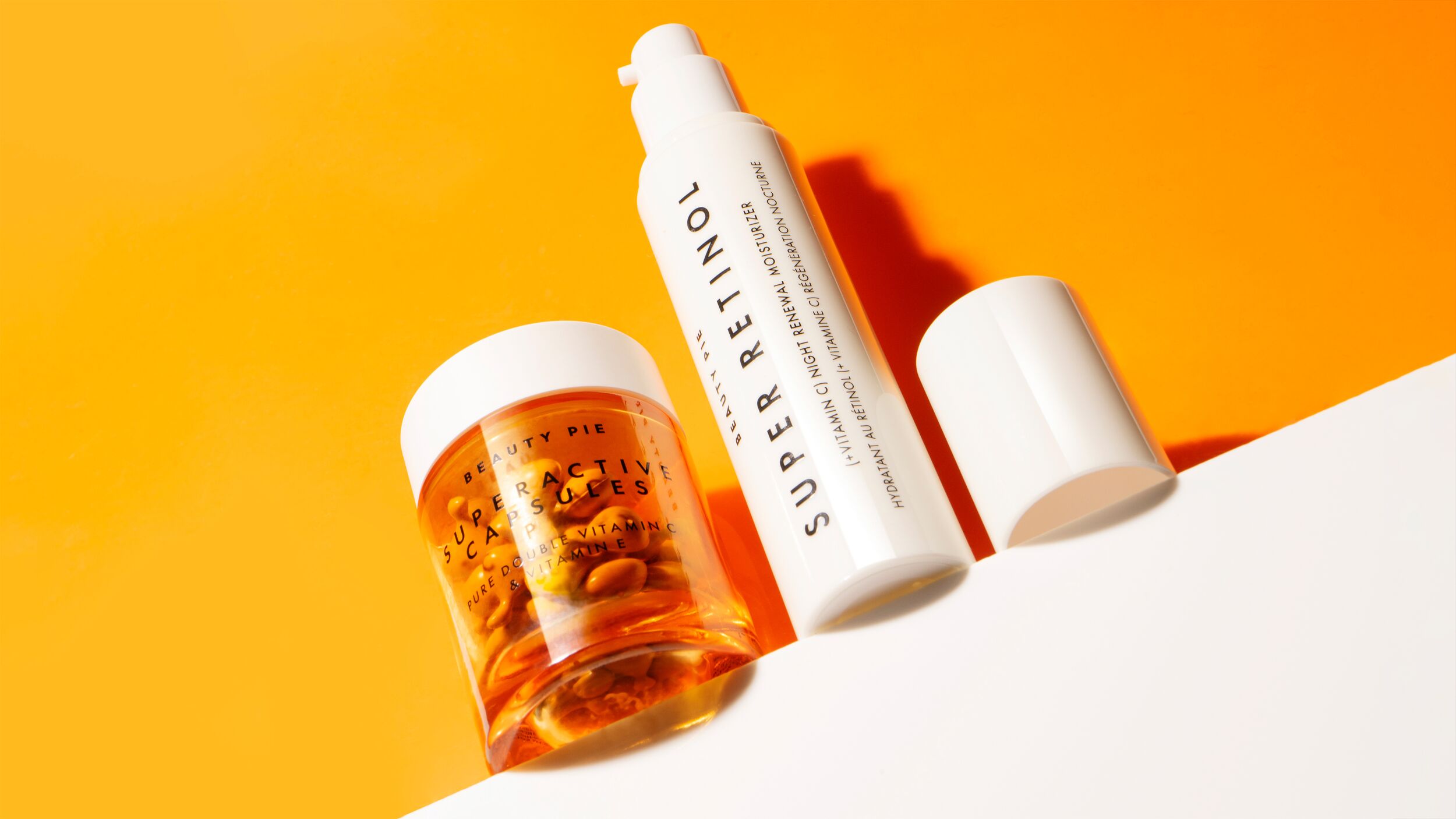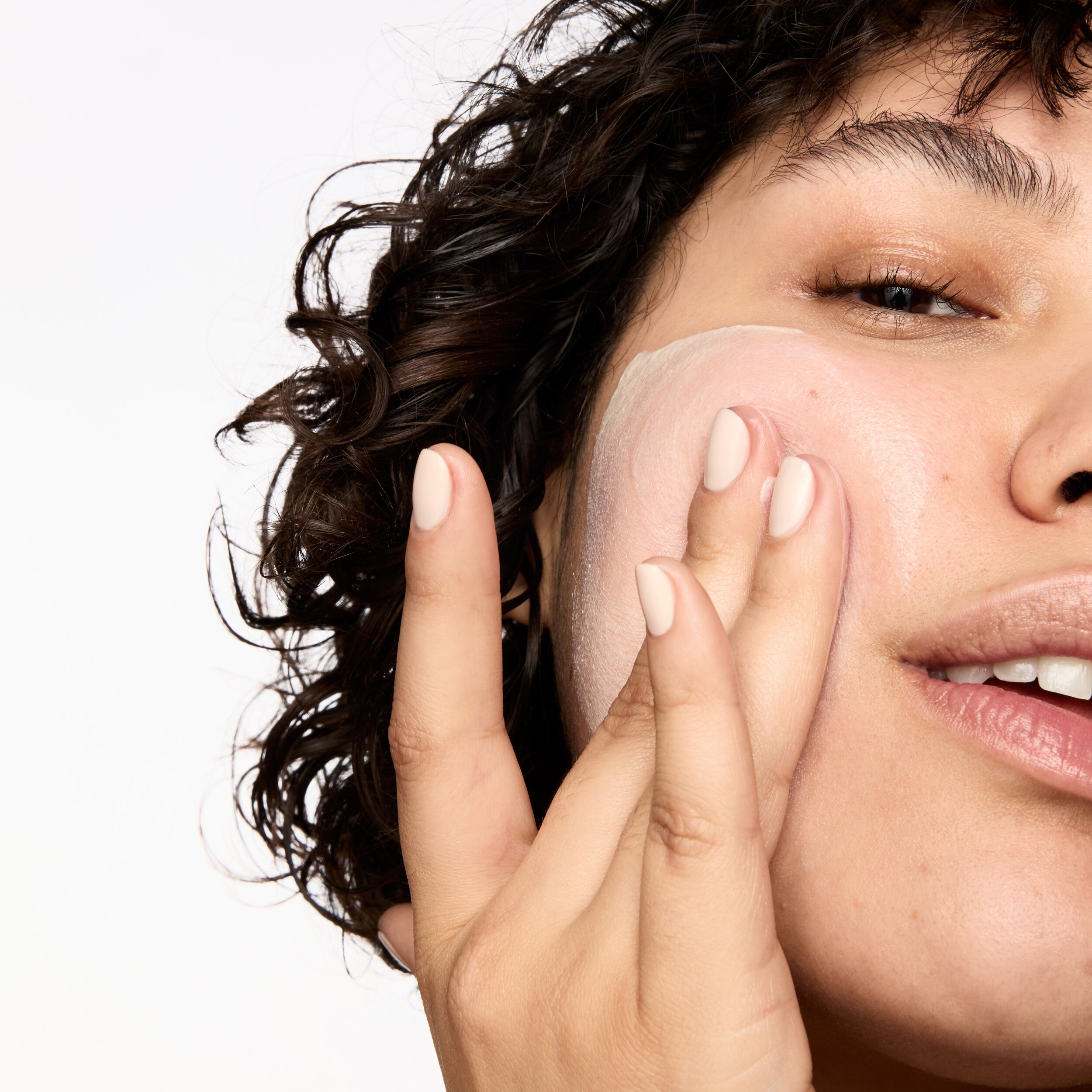
Vitamin C will very likely work wonders for your skin – it's anti-ageing, helps treat hyperpigmentation and can brighten a dull complexion overnight. If you’ve got old acne scars or redness, the right Vitamin C can probably help fade them, if you’ve been sun damaged and it left a pigmented imprint (your forehead, your cheeks, your hands) a bit of Vitamin C on rotation with some Retinol can deliver a difference that’s quite radical – in fact, there’s a perfect Vitamin C product for almost every skin type and complexion concern.
As with many skincare actives, Vitamin C comes in a variety of different concentrations, with higher concentrations offering more benefits, but also more of a risk of irritation. As a general rule, if you have sensitive skin or are using Vitamin C for the first time, you should start with a low concentration (10% or below - try our Superactive CapsulesPure Double Vitamin C & Vitamin E Serum) and see how your skin tolerates it before working your way up.

Experienced skincare users who are looking for extreme results can try our new Superactive Capsules Extreme 30% Vitamin C Serum + Resveratrol + Oryzanol, which deliver 30% pure high-potency Ascorbic Acid in its freshest form, along with Resveratrol (a potent antioxidant), Oryzanol for a clearer, more even looking complexion, and antioxidants to help protect skin against pollution and urban dust.
When it comes to getting the most out of your Vitamin C skincare, we called upon Consultant Dermatologist Dr. Andrew C Markey MD FRCP to give us his advice on how to make Vitamin C work in almost any skincare routine.
How to use Vitamin C for Skin - The Expert Guide
Why do I need to use Vitamin C?
Vitamin C for Anti-Ageing
“Vitamin C’s real strength is in anti-ageing,“ says Dr Markey. “Pure Ascorbic Acid has consistently been proven to be the most effective form of Vitamin C but it needs to be made fairly acidic to penetrate the skin barrier, which can irritate some skin types.“ Its effectiveness increases further when combined with other antioxidants, such as Vitamin E and Ferulic Acid providing increased protection against free-radical damage.
Vitamin C has anti-inflammatory effects so can also help with acne
Dr Andrew Markey, Consultant Dermatologist
Vitamin C for acne scars and acne-prone skin
“Vitamin C has anti-inflammatory effects so can also help with acne – and high concentrations of gold standard pure Vitamin C (15%) and Ferulic Acid (.5%) work to help reduce pigmentation marks (post inflammatory pigmentation) and post-breakout redness as well as calming skin.” says Dr Markey.
Vitamin C for Rosacea
Look for an anti-inflammatory Vitamin C serum that's specifically made for people with rosacea, this will likely contain an ester of Vitamin C such as Ascorbyl Glucoside. A fragrance-free, moisturising topical serum designed to help soothe irritation and redness is your best bet.
 With continued use Vitamin C can even prevent pigmentation from forming.
With continued use Vitamin C can even prevent pigmentation from forming.Vitamin C for dark spots, hyperpigmentation and melasma
“As it is with anti-ageing, Vitamin C is a ‘magic bullet’ when tackling pigmentation and dull skin. Consider it your morning skincare essential, applied before SPF,” says Dr. Markey. “With continued use Vit C can even prevent pigmentation from forming. Look for a formula that combines Vitamin C with fellow antioxidant Vitamin E to repair as well as brighten.”
Consider [Vitamin C] your morning skincare essential, applied before SPF.
Dr Andrew Markey, Consultant Dermatologist
“If you have melasma (a result of hormones, UV exposure and genetics) DO remember that even if pigmentation fades, without a broad spectrum SPF50 sunscreen it may return on reexposure to the sun.
Vitamin C for brightening dull skin
A product with Vitamin C and Ferulic Acid, two ‘super’ actives, will brighten dull and uneven skin brilliantly.
Vitamin C for sensitive skin
Vitamin C shouldn’t cause skin irritation if used correctly but high concentrations of Ascorbic Acid can cause sensitivity. Vitamin C esters are less active and so less likely to cause irritation – aim for a maximum 10% concentration of Vitamin C and introduce the product gradually – if it’s recommended to use it twice a day, start off with one dose.
If you suspect you need to replace Vitamin C with something more gentle, Niacinamide is a great alternative. Azelaic Acid and Bakuchiol are both anti-ageing and suitable for sensitive skin while Tranexamic Acid/Arbutin or Liquorice will help with hyperpigmentation.
How often should I apply Vitamin C for optimum results?
Daily.
Dr. Markey says “Dermatologists often recommend Vitamin C as part of a morning routine because, unlike retinoids, it isn’t impacted by ultraviolet light and even helps to prevent UV damage during the day.
New data also suggests that using antioxidants, like Vitamin C, in the evening may help fight post-sun skin damage too.”

When do I use Vitamin C in my routine?
Vitamin C absorbs into skin most effectively after cleansing.
AM: after cleansing, allow to absorb before applying a moisture lotion/SPF and your foundation and makeup.
PM: add a dose to your go-to night moisturiser, or layer a Vitamin C serum beneath it for a boost.
How do I use Vitamin C in my skincare routine?
“The benefits of using a Vit C serum can be extensive. Ascorbic Acid in high concentrations (15%+) will treat more persistent skin problems, but lower concentrations are also effective. On rosacea and sensitive/dry skin where you’d want to avoid L-Ascorbic Acid you can use the gentler Vitamin C esters,“ says Dr. Markey. Research shows that even concentrations of 0.6% have antioxidant and reparative properties.
Can I use Vitamin C Capsules?
Some forms of Vitamin C, especially those products contained in clear containers, can oxidise when exposed to light or air can and become less effective over time. Airtight, opaque containers or Vitamin C capsules, like our Superactive Capsules, are self contained doses which prevent oxidation and provide a measured amount of targeted serum to smooth, firm and brighten skin.
Is it safe to use Vitamin C under eyes?
Yes. Vitamin C can help reduce the appearance of dark circles, as can certain peptides and gentle retinols.
Can I use Vitamin C serum after derma-rolling?
“Yes - unlike retinoids, Vitamin C can be used just before and just after dermarolling to increase absorption, particularly if hyperpigmentation is an issue and you’re well versed in your Vit C usage!“ If you have very sensitive skin, check with your dermatologist first or opt for a soothing serum instead. After dermarolling, we’d suggest always having a tube of Super Healthy Skin Lotion on hand.
Is Vitamin C safe to use in pregnancy?
Yes! Many dermatologists also recommend using a daily Vitamin C serum during your pregnancy to help brighten dark spots and help prevent pigmentation (aka melasma or ‘pregnancy mask’).
Footnotes
Reviewed by Consultant Dermatologist Dr Andrew C Markey MD FRCP.


